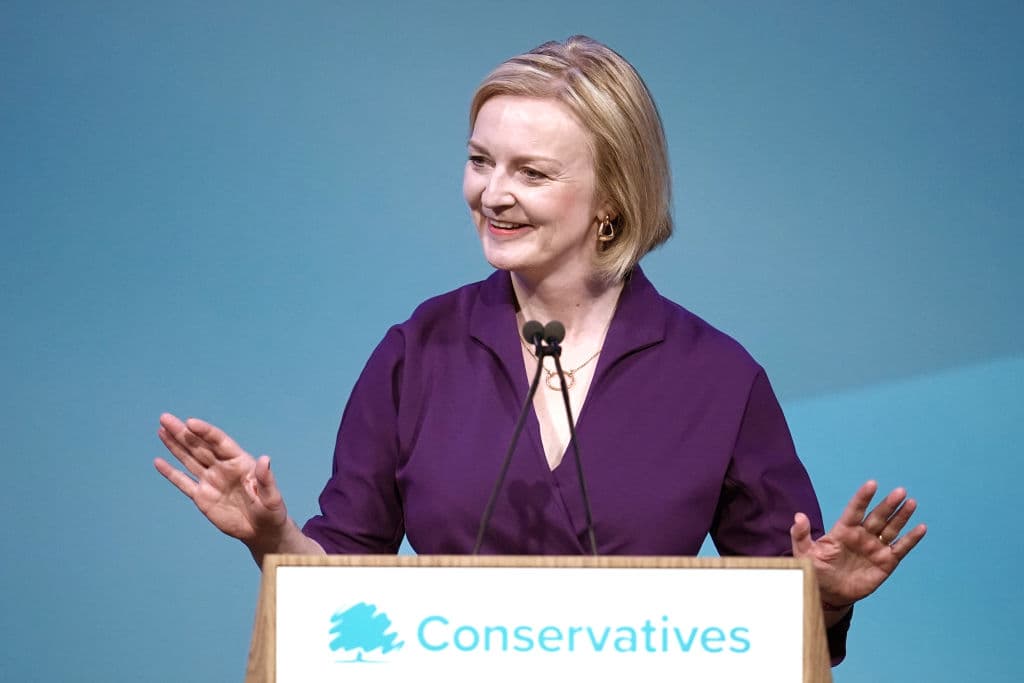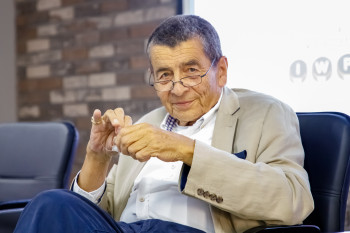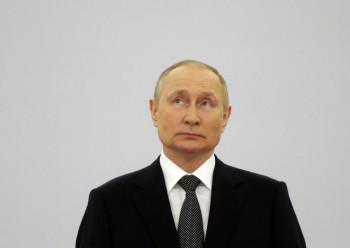Will UK support for Ukraine change under Liz Truss?

Liz Truss, UK’s future prime minister, is expected to be just as committed to helping Ukraine as her outgoing predecessor and fellow Tory, Boris Johnson.
Truss has vowed to make sure that “the flame of freedom in Ukraine continues to burn bright,” and that Russian President Vladimir Putin will not prevail in his invasion.
“Under my leadership, President (Volodymyr) Zelensky will have no greater ally at this dark hour than the UK,” she wrote.
The UK has been very hawkish on Russia and this attitude is not expected to change. With few exceptions, there’s a cross-party consensus that the UK should continue to support Ukraine militarily, politically, and economically.
However, Britain’s ongoing economic problems may limit its options. The Bank of England expects the country to go through a recession and its inflation has risen to around 10%.
Truss wants tax cuts and relief from soaring energy bills for the population, which mean less revenue for the government. The Conservative party also wants to raise defense spending, which will be harder to do with fewer resources.
“She has a problem and it’s a question of what she’ll prioritize because she can’t prioritize everything,” said Ian Bond, the director of foreign policy at the think tank Center for European Reform. “We don’t know what that will be at the moment.”
Truss, who led the foreign office for nearly a year, won the Conservative Leadership election on Sept. 5, defeating former finance minister Rishi Sunak with 57% of the votes. She will become the third woman to serve as prime minister of the UK, following Margaret Thatcher and Theresa May.
Johnson was forced to resign as the Conservative Party head on July 7 after his leadership was dogged by multiple scandals causing government members to quit en masse.
Despite his problems at home, Johnson was perhaps Ukraine’s most beloved foreign politician for his fiery support of the country in its battle for survival against Russia. He took the lead on sending heavy weapons to Ukraine and made multiple visits to Kyiv, where he appeared with Zelensky. He was even made an “honorary Cossack” by the Cossack community in the city of Chernihiv.
Johnson’s critics said he used his support for Ukraine to draw attention away from his domestic scandals.
Truss may not be especially popular at home either. According to a poll by YouGov, only 12% of the British public believe she’ll be a good or great PM, compared with 52% who believe she will be poor or terrible.
But when it comes to Ukraine, the UK will remain steadfast after Johnson’s gone, some British analysts, politicians, and former officials have previously told the Kyiv Independent.
“I believe that the unwavering support of the UK for Ukraine will not weaken,” said Bohdan Myronenko, a senior fellow with the Ukrainian think tank ADASTRA. “I sincerely believe that Truss’s leadership will not be detrimental for Ukraine and its Armed Forces.”
He pointed out that some Ukrainians don’t realize that British support does not just come from the Conservative Party but is part of a consensus shared by a majority of UK politicians.
He added that he hopes the UK will take on a more coordinating role and become a beacon for Commonwealth countries, driving them to increase their support of Ukraine and cool their relations with Moscow.
Bond said Truss is likely to reappoint Ben Wallace, a stalwart supporter of Ukraine, as defense secretary.
In the Kremlin, Truss is "a figure of contempt," Mark Almond, director of the Crisis Research Institute in the UK, was quoted as saying by Newsweek.
She reportedly made a gaffe in a meeting with Russian Foreign Minister Sergey Lavrov in February. He asked her if the UK would recognize Russia’s sovereignty over two Russian cities — Truss said the UK would not, believing he was talking about eastern Ukrainian cities.
Yet in spite of strong British support, the question remains “how much money does the UK have to continue to provide defense equipment for Ukraine,” Bond said.
“The basic problem is that Liz Truss wants to give tax cuts to the British people and that means less revenue for the government,” he continued. “She is also under a lot of pressure to provide more assistance to the population with energy bills which are going up due to the structure of the energy market in the UK.”
Bond said that she will likely take steps that don't cost so much money, like providing training to Ukrainian troops to become more effective in large, combined-arms operations. Providing heavy equipment will be harder, although with Russia being a key threat to the UK, giving Ukraine those weapons to fight Russia is considered a sensible security policy.
Another challenge may be Truss’s position as a hard-line pro-Brexit politician. While she supported the Remain vote in 2016, she has since reinvented herself as a Brexiteer and may be pressured to appease like-minded MPs by filling her cabinet with other hardliners.
This may deepen the rift between London and Brussels, which can lead to trade restrictions with the EU and make it harder to work with European partners on sanctions and participate in European defense projects.
While Myronenko acknowledges that the UK and EU “won’t be best friends under Truss,” he said that both allies are committed to helping Ukraine fight back against Russia.
“Our compatriots are happy to see that the governments of Europe and countries outside Europe are united in their unwavering support for Ukraine,” he said.












